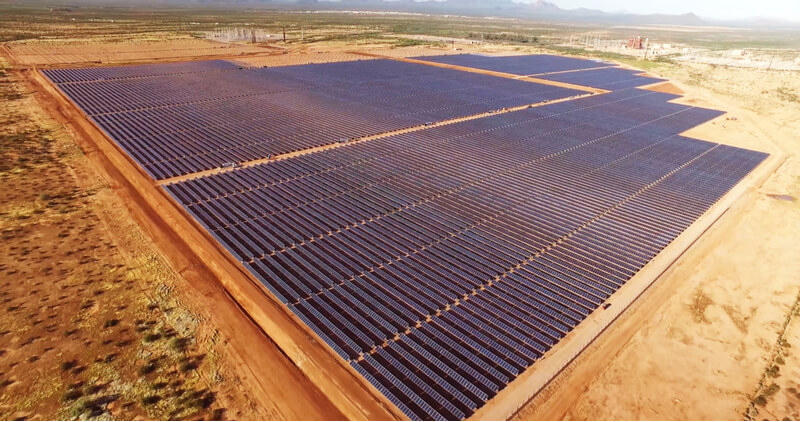ABU DHABI, United Arab Emirates — I first heard about global warming being attributable to human activity about 50 years ago. Back then, it was just a curiosity, a matter of academic discussion. It didn’t engage the environmental movement, which marshaled opposition to nuclear and firmly advocated coal as an alternative.
Twenty years on, there was concern about global warming. I heard competing arguments about the threat at many locations, from Columbia University to the Aspen Institute. There was conflicting data from NASA and other federal entities. No action was proposed.
The issue might have crystallized earlier if it hadn’t been that between 1973 and 1989, the great concern was energy supply. The threat to humanity wasn’t the abundance of fossil fuels. It was the fear that there weren’t enough of them.
The solar and wind industries grew not as an alternative but rather as a substitution. Today, they are the alternative.
Now, the world faces a more fearsome future: global warming and all of its consequences. These are on view: sea-level rise, droughts, floods, extreme cold, excessive heat, severe out-of-season storms, fires, water shortages, and crop failures.
Sea-level rise affects the very existence of many small island nations, as the prime minister of Tonga, Siaosi Slavonia, made clear here at the annual assembly of the International Renewable Energy Agency (IRENA), an intergovernmental group with 167 member nations.
It also affects densely populated countries like Bangladesh, where large, low-lying areas may be flooded, driving off people and destroying agricultural land. Salt works on food, not on food crops.
Sea-level rise threatens the U.S. coasts — the problem is most acute for cities such as Boston, New York, Miami, Charleston, Galveston and San Mateo. Flooding first, then submergence.
How does human catastrophe begin? Sometimes it is sudden and explosive, like an earthquake. Sometimes it advertises its arrival ahead of time. So it is with the Earth’s warming.
Delegates at the IRENA assembly felt that the bell of climate catastrophe tolls for their countries and their families. There was none of the disputations that normally attend climate discussions. Unity was a feature of this one.
The challenge was framed articulately and succinctly by John Kerry, U.S. special presidential envoy for climate. Kerry’s points:
—Global warming is real, and the evidence is everywhere.
—The world can’t reach its Paris Agreement goal of limiting warming to 1.5 degrees Celsius by 2030 or the ultimate one of net-zero carbon by 2050 unless drastic action is taken.
—Warming won’t be reversed by economically weak countries but rather by rich ones, which are most responsible for it. Kerry said 120 less-developed countries produce only 1 percent of the greenhouse gases while the 20 richest produce 80 percent.
—Kerry, notably, declared that the technologies for climate remediation must come from the private sector. He wants business and private investment mobilized.
The emphasis at this assembly has been on wind, solar and green hydrogen. Wave power and geothermal have been mentioned mostly in passing. Nuclear got no hearing. This may be because it isn’t renewable technically. But it does offer the possibility for vast amounts of carbon-free electricity. It is classed as a “green” source by many government institutions and is now embraced by many environmentalists.
The fact that this conference has been held here is of more than passing interest. Prima facie, Abu Dhabi is striving to go green. It has made a huge solar commitment to the Al Dhafra project. When finished, it will be the world’s largest single solar facility. Abu Dhabi is also installing a few wind turbines.
Abu Dhabi has a four-unit nuclear power plant at Barakah, with two 1,400-megawatt units online, one in testing and one under construction. Yet, the emirate is a major oil producer and is planning to expand its production from more than 3 million barrels daily to 5 million barrels.
The Russian invasion of Ukraine has made oil more valuable, and even states preparing for a day when oil demand will drop are responding. Abu Dhabi isn’t alone in this seeming contradiction between purpose and practice. Green-conscious Britain is opening a new coal mine.
The energy transition has its challenges — even in the face of commitment and palpable need. The delegates who attended this all-round excellent conference will find that when they get home.
In the United States, utilities are grappling with the challenge of not destabilizing the grid while pressing ahead with renewables. Lights on, carbon out, is tricky.

 Follow
Follow
Leave a Reply